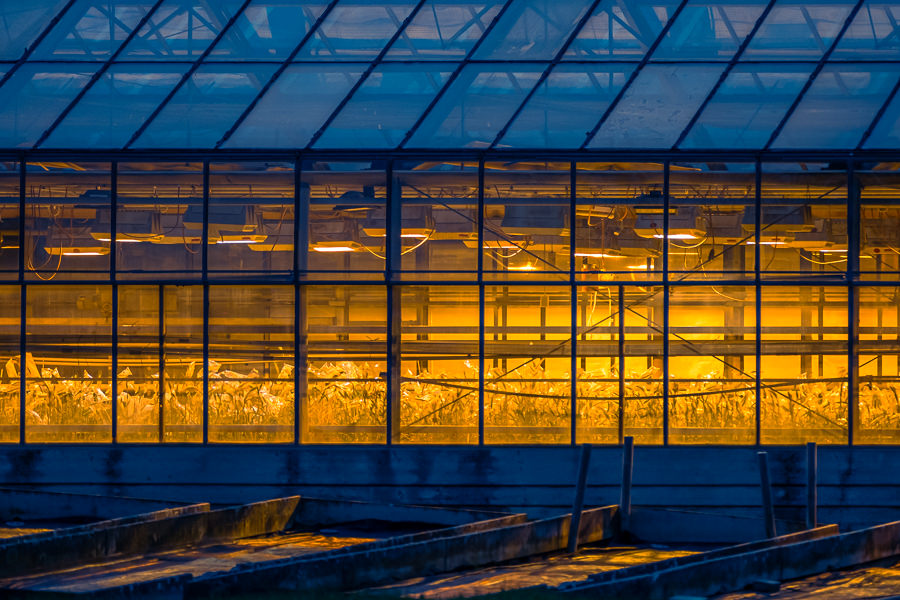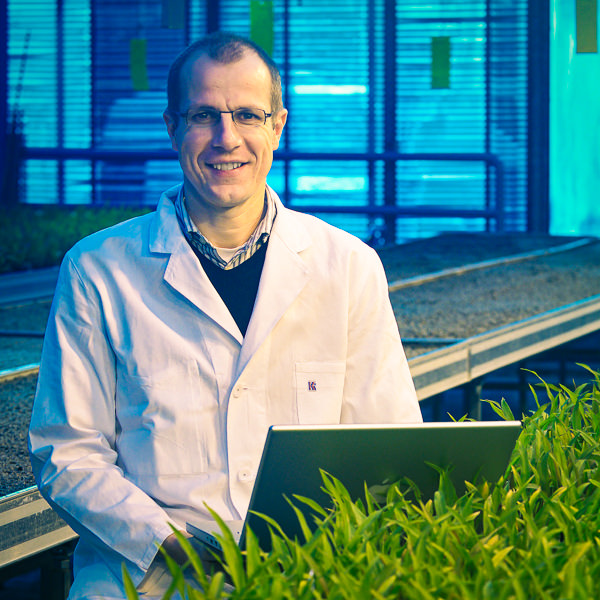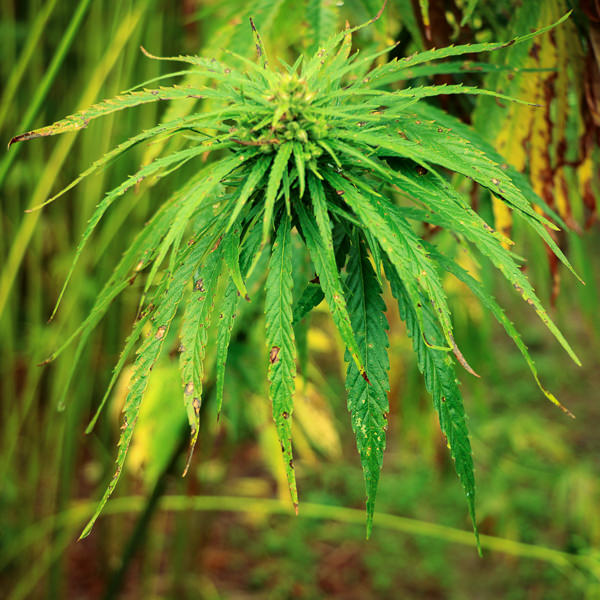
It starts in the field: Agriculture Rebooted
Our eating habits and lifestyles have managed to put the planet in a difficult climatic situation. At the University of Hohenheim, we have scientists who believe that changes in animal husbandry methods and the (re)cultivation of crops that were previously grown in the corresponding regions can play a crucial role in reducing the impact of agriculture and food production on climate change.
Farm fertilizers: A Merry-Go-Round for Proteins
One of the big problems of animal farming is nitrogen emission into the soil and the atmosphere due to fertilizers. Luckily, Hohenheim scientists don’t see problems as insurmountable obstacles but as opportunities, and the opportunity here is a bioeconomical and protein-friendly solution on a regional scale: targeted recycling of nutrients from farm manure.
Farm manure is an inevitable residual product of animal farming. Farmers use their farm manure in addition to synthetic fertilizers to re-fertilize their fields and enhance the level of the crop’s protein.
Due to a growing number of regulations to restrict the use of fertilizers, farmers in intensive farming areas are facing the problem of what to do with their valuable manure. In the raw, carting it to areas with a high need for fertilizers is far too expensive, resulting in the destruction of the manure and its useful ingredients.
This is how the Hohenheim solution works:
- Build a fully functional biorefinery on an industrial scale for the processing of farm manure. It needs to be big enough to process the residue of the chosen region.
- Use the energetic output of the manure (bio gas).
- (Re-)process the manure into a nitrogen fertilizer (an ammonium sulfate solution) that can be re-introduced into the soil.
A win-win situation in intensive farming regions, as the manure goes full circle:
- valuable substances aren’t lost but re-introduced into the bio-cycle,
- the environment is being spared,
- the farmers save money for fertilizers and even earn a little through selling their surplus.
Digging deeper
- Agriplus – Efficiency increase in arable farming in Hohenlohe through nutrient recovery from farm manure (EIP Agri)
- Win-N – Reducing nitrogen emissions by improving nutrient efficiency
- GuelleBest – Minderung von Ammoniak- und Treibhausgasemissionen und Optimierung der Stickstoffproduktivität durch innovative Techniken der Gülleausbringung in wachsende Bestände
- Grundständige Analyse der Weizenqualität im Sinne der Verbesserung der Stickstoff-Nutzungseffizienz
Veggies: Green Helpers for Sustainability
Food production must increase to meet the demand of a growing world population or there will be serious food shortages in the future. But the way we produce food today is bad for the planet. Scientists at the University of Hohenheim and around the world are working hard to develop ideas that can lead to fundamental changes in agriculture and the food industry. One focus is the search for methods to increase protein efficiency in plants and in crops. They also want to improve the regional supply of protein so that our meat and dairy products can be produced more sustainable and continue to be consumed.
Brimming with proteins: Soybeans
Research on soybeans at the University of Hohenheim goes back to the year 1982 and is now culminating in various projects such as the fascinating citizen science project 1000 Gaerten and SENSOJA.
SENSOJA is a collaborative project aimed at breeding protein-rich soybean varieties that are specifically adapted to various types of stress which can adversely affect plant health.
Why soybeans and what kind of stress?
Soy-based ingredients make up more than half of the global meat substitute market because soy is an excellent source of protein. The quality of soy protein is comparable to that of milk protein according to the Digestible Indispensable Amino Acid Score (DIAAS) which is a measure for protein absorption. Together with a few other foods, soybeans as well as milk are called sources of complete protein because they contain all the essential amino acids required by the human body.

We don't want to pit one food against another or ride a trend. We are concerned with long-term nutritional quality and food security.
Most of the soybeans used today in food and feed around the world come from the United States of America, Brazil, Argentina, or Paraguay. The high global demand and profits have made the cultivation of soybeans in South America one of the leading contributors to deforestation of rain forests and therefore to climate change. For reasons of food security and sustainability, it is necessary to find alternative regions for cultivating this crop.
A plant to withstand the weather
Our planet is already experiencing many effects of climate change such as extreme heat or cold, drought, flooding, or salinity and plants are suffering from all of them. The specific stress for soybean plants that the SENSOJA scientists at the University of Hohenheim have in mind is drought. The aim of the project is to optimize the plant breeding processes and create improved soybean breeds for farmers. Their approaches use genotyping, sensor-assisted techniques, and new computational analysis methods. It's amazing how modern agricultural research draws on classic skills and peppers them with up-to-date data science to achieve outstanding results. We are proud that the University of Hohenheim's agricultural research ranks among the best in the world.
High times: Hemp
Hemp, or cannabis as is its scientific name, has been in the focus of Hohenheim researchers for many years. As a crop plant it has suffered a social stigma because of varieties of hemp that contain the psychoactive substance THC (Tetrahydrocannabinol). The varieties used in food and commercial production are practically free of it.
What has hooked the University of Hohenheim to hemp?
Hemp is a prime example of a “multipurpose plant” with lots of benefits. It doesn't need watering and requires almost no fertilizing, it is resistant to environmental stress, and its seeds contain up to 25% protein! Hemp protein is a complete protein because it contains all essential amino acids. It is well tolerated, and unlike wheat or lupins, there are very few people who are allergic to it.

Hemp proteins have a desirable chewy, meat-like texture that creates the sensory impression of meat in the mouth.
It is ideally suited for a sustainable circular economy because we can use every part of the plant: its seeds, leaves, flowers, stalks, and roots. Its fibers are used to make clothing or ropes, paper, and building materials. Stalks, leaves, and other plant matter can be utilized for the production of biofuels or high-quality carbon materials for electrodes and supercapacitors. Its seeds are highly nutritious for their fatty acids, proteins, vitamins, and minerals. Hemp seed oil, finally, is used for culinary and cosmetic purposes.
The bigger and more colorful picture
The University of Hohenheim's scientists are mainly interested in hemp for its role in a bioeconomical context and its potential as an additional protein source in the race for global food security.
Tiny powerhouses: Lentils and chickpeas
The overall idea of these research projects is to increase the market supply of regionally produced protein-rich plant products and the area under cultivation. Scientists are rediscovering knowledge about old cultivars in order to pass it on to farmers. These cultivars are often referred to as “ancient grains” and include amaranth, spelt, and einkorn, among many others. Farmers need to know about sowing dates, seed germination rates, rhizobia inoculation, maturity, and weed and disease management for these crops. For cooperation partners in the food industry, our food scientists accumulate expertise concerning further processing like drying and preparation. They also make recommendations as to which variety is suitable for specific manufacturing forms or end products.
Through the development of high-yielding varieties that are resilient to environmental stress and pests, protein research at the University of Hohenheim helps to ensure a stable and sufficient supply of protein-rich food for us all, mitigating the risk of malnutrition and food insecurity. The collaborative efforts of academia, policymakers, and industry stakeholders in these domains are crucial for translating protein research findings into practical solutions that positively impact the lives of individuals and communities worldwide.
Projects
The SENSOJA project is a brand-new collaborative program with the State Plant Breeding Institute at the University of Hohenheim, the Federal Research Centre for Cultivated Plants Julius-Kühn Institute (JKI),and a private breeding company as partners.
The QUIZ project (Breeding quinoa for cultivation in Germany) is a brand-new collaborative program funded by the German Federal Ministry of Food and Agriculture.
Digging deeper
- PRIMA – Quinoa4Med Collaborative Project: Quinoa as a climate-smart option for crop diversification on marginal lands and income generation in the Mediterranean region
- QUIZ – Quinoa breeding for cultivation in Germany
- Eat Protein – Brochure for farmers: Instructions for growing local protein-rich crops (German)
- Eat Protein – Brochure for consumers: Protein from the region (German)
Research with us
The University of Hohenheim is Germany’s leading research facility in agricultural research and food sciences, as well as strong and unparalleled in natural, social, and communication sciences.
- Researchers of Proven Excellence
Our scientists demonstrate exceptional skills, knowledge, and achievements. - Strong Focus on Research
We are very well networked and have a unique research profile. - Scientific Research facilities
The University of Hohenheim accommodates various institutions whose structures enable joint research and teaching activities, thus creating the optimal conditions for conducting outstanding research and then transferring it outside of the university. - Dedicated Portal for Early Career Researchers
We are strongly committed to qualification in the early stages of scientific careers. - Innovation and Transfer
We promote intensive cooperation between scientists, private companies, and other societal actors. - Scientific Integrity at the University of Hohenheim
The University of Hohenheim, as a center for research, teaching, and the promotion of early career researchers, undertakes to create and continuously develop the suitable framework conditions for anchoring the culture of scientific integrity and ethics in daily scientific practice. - Professorial Appointments
Our Professorial Appointment Portal offers help for all parties involved throughout the whole process of professorial appointments. - Cooperations
On all levels, the University of Hohenheim networks with universities and research institutions with outstanding international reputation. - Research Promotion
Professional and practical support and assistance through application processes for third-party funds.